Tag: Harvard Medical School
-
Health
New frontier of risk
A recent study by a group of Harvard-affiliated researchers found a sharp increase in the use of opioid painkillers among a large group of pregnant women between 2000 and 2007. Its lead author discussed the findings with the Gazette.

-
Campus & Community
HBS gift establishes entrepreneurship fund
The Bertarelli Foundation of Switzerland, co-chaired by Ernesto Bertarelli, M.B.A. ’93, has established the Bertarelli Foundation Health and Life Sciences Entrepreneurship Fund with a gift to Harvard Business School.

-
Health
Eve Ensler’s personal monologue
Author and activist Eve Ensler, who opened Radcliffe’s two-day conference “Who Decides? Gender, Medicine, and the Public’s Health,” read from her new memoir, “In the Body of the World.” The conference brought together physicians, policymakers, journalists, and academics to examine topics such as how we care for our health and respond to disease.

-
Campus & Community
By the people, for the people
Annual dinner honors Harvard staff who became U.S. citizens with help from the Harvard Bridge Program and the Harvard Kennedy School’s Institute of Politics.

-
Health
New hope for treating ALS
Harvard stem cell scientists have discovered that a recently approved medication for epilepsy might be a meaningful treatment for amyotrophic lateral sclerosis (ALS), also known as Lou Gehrig’s disease, a uniformly fatal neurodegenerative disorder.

-
Health
Solving the problem of shape-shifters
Investigators at Harvard-affiliated Massachusetts General Hospital (MGH) may have found a way to solve a problem that has plagued ligand-mimicking integrin inhibitors, a group of drugs that have the potential to treat conditions ranging from heart attacks to cancer metastasis.
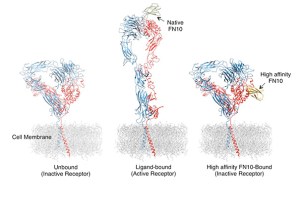
-
Health
New childhood TB cases double earlier estimates
Harvard researchers have estimated that around 1 million children suffer from tuberculosis annually — twice the number previously thought to have the disease and three times the number of cases diagnosed every year.
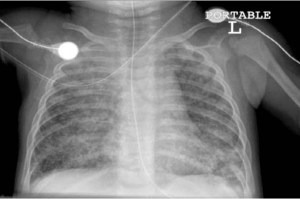
-
Campus & Community
Meeting the challenges
Harvard University has announced 18 student-led teams as finalists in three deans’ innovation competitions focused on cultural entrepreneurship, health and life sciences, and design.

-
Health
Genetic link between fried foods and obesity?
Harvard researchers have released the first study to show that the adverse effects of fried foods may vary depending on the genetic makeup of the individual.

-
Health
Too sweet for our own good
Even the “healthy” fruit drinks that Americans sip are packed with the amount of sugar contained in six cookies. That love affair is making us sick.
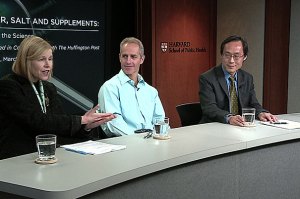
-
Health
Vaccine holds promise against ovarian cancer
A novel approach to cancer immunotherapy — strategies designed to induce the immune system to attack cancer cells — may provide a new and cost-effective weapon against some of the most deadly tumors, including ovarian cancer and mesothelioma.
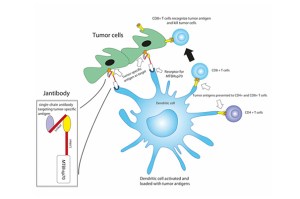
-
Health
Major step in preventing type 2 diabetes
Researchers at the Broad Institute and Massachusetts General Hospital, both Harvard affiliates, have identified mutations in a gene that can reduce the risk of individuals developing type 2 diabetes. If a drug can be developed that mimics the protective effect of these mutations, it could open up new ways of preventing this devastating disease.

-
Health
Nutritional supplement slows onset of Huntington’s
The first clinical trial of a drug intended to delay the onset of symptoms of Huntington’s disease (HD) reveals that high-dose treatment with the nutritional supplement creatine was safe and well tolerated by most study participants. Neuroimaging also showed a treatment-associated slowing of regional brain atrophy, evidence that creatine might slow the progression of presymptomatic…
-
Health
Neanderthals’ DNA legacy linked to modern ailments
Remnants of Neanderthal DNA in modern humans are associated with genes affecting type 2 diabetes, Crohn’s disease, lupus, biliary cirrhosis, and smoking behavior. They also concentrate in genes that influence skin and hair characteristics. At the same time, Neanderthal DNA is conspicuously low in regions of the X chromosome and testes-specific genes.

-
Health
Researchers create embryonic stem cells without embryo
Researchers have created embryonic stem cells without an embryo. This discovery of a novel reprogramming method of adult cells, without introducing external genetic material, could dramatically shift stem cell research.
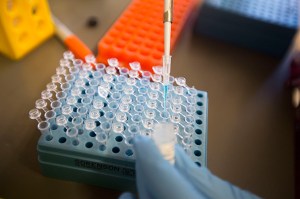
-
Health
Bio-inspired glue keeps hearts securely sealed
The waterproof, light-activated glue developed by researchers at Harvard-affiliated Brigham and Women’s Hospital and Children’s Hospital Boston and their colleagues at MIT can successfully secure biodegradable patches to seal holes in a beating heart.
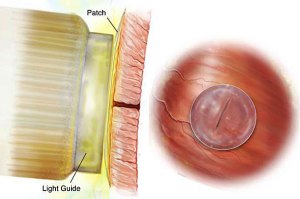
-
Health
Color-coded labels, healthier food
Using color-coded labels to mark healthier foods and then displaying them more prominently appears to have prompted customers to make more healthful long-term dining choices in their large hospital cafeteria, according to a report from Harvard-affiliated Massachusetts General Hospital

-
Health
Ludwig Cancer Research awards HMS $90M
Ludwig Cancer Research, on behalf of its founder, Daniel K. Ludwig, has given Harvard Medical School $90 million to spur innovative scientific inquiry and discovery. According to the Ludwig announcement, this new financial support is among the largest private gifts ever for cancer research.
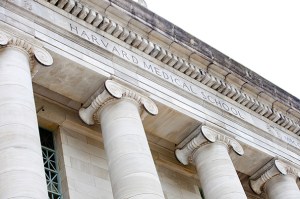
-
Health
Pinpointing the higher cost of a healthy diet
The healthiest diets cost about $1.50 more per day than the least healthy diets, according to new research from Harvard School of Public Health. The finding is based on the most comprehensive examination to date comparing prices of healthy foods and diet patterns against less healthy ones.

-
Campus & Community
Serving, thanks, and giving
The annual “Giving Thanks” open house was an opportunity for members of the Harvard community to write notes of gratitude to fellow staff members and provide support for community programs.

-
Health
Viral infections may have met their match
A Massachusetts General Hospital-led research team of Harvard affiliates has identified an immune cell protein that is critical to setting off the body’s initial response against viral infection.
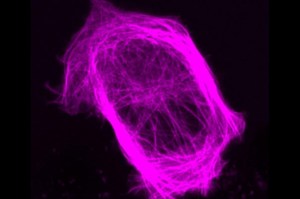
-
Health
Nut consumption reduces risk of death
In the largest study of its kind, people who ate a daily handful of nuts were found to be 20 percent less likely to die from any cause over a 30-year period than those who didn’t consume nuts, say Harvard researchers.

-
Health
Researchers find drug that could halt kidney failure
A drug approved for the treatment of rheumatoid arthritis may also turn out to be the first targeted therapy for one of the most common forms of kidney disease, a condition that almost inevitably leads to kidney failure.
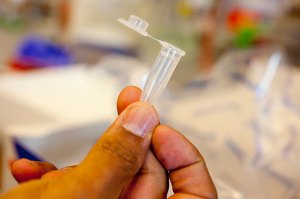
-
Arts & Culture
Oh, the horror!
What’s behind the fascination with horror? A number of Harvard experts recently offered their insight into the genre’s powerful lure.

-
Health
When depression and anxiety loom
Two new books from Harvard Health Publications are aimed at people who have more than normal levels of anxiety and depression but fall short of clinical definitions.

-
Nation & World
In Chile, a head start
A Harvard-backed initiative in Chile aims to reduce economic disparity through an early education health initiative supported by the Harvard Graduate School of Education and Harvard Medical School.







